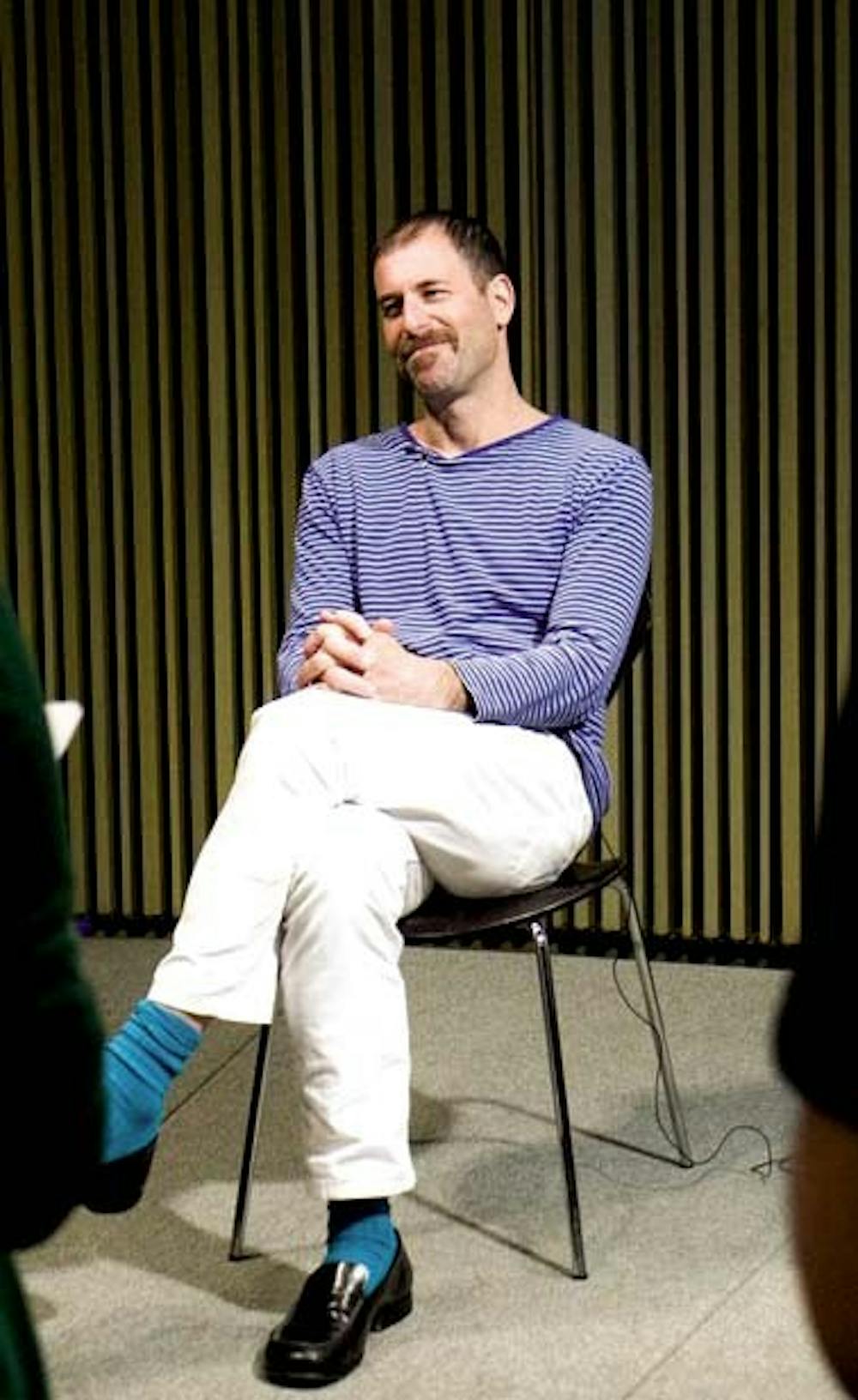A full-time poet and part-time lecturer at the Center for Programs in Contemporary Writing, Kenneth Goldsmith is also a self-professed “institutional critic.”
So when he was named the first “poet laureate” of the Museum of Modern Art in New York City in January, Goldsmith was naturally “suspicious.”
“I try to hold up a mirror to the institution that I’m involved with,” Goldsmith said in an interview. “And MoMA is a really rigid and hierarchical place.”
Goldsmith was nevertheless “honored” to have been awarded the position and decided to take off a year from teaching to give MoMA a try.
Realizing that the museum had never held readings in its permanent galleries — relegating them instead to “a small auditorium buried away in the basement of an outbuilding” — Goldsmith invited numerous writers, including Penn professor Charles Bernstein, to MoMA in an attempt to “educate the global visual art audience about literature.”
But art museums and large research universities hardly seem like a conducive environment for a poet who has made an entire career out of being “unconventional.”
Goldsmith’s books are notable not so much for their writing as for the way in which he compiles seemingly random information into a finished product.
He is a conceptual poet, or in his words, “I make things that are better to think about than they are to read.”
RELATED
1/24/13: Engineering professor’s diagram of robotic eye on display at MoMA
10/13/11: Penn professor encourages plagiarism
For instance, in 2000’s “Fidget,” Goldsmith recorded every single movement his body made over a period of 13 hours. For 2003’s “Day,” he retyped every word of a copy of The New York Times.
“On the page my work is absolutely horrible,” Goldsmith said, but the reactions he receives at his readings are often glowing.
Performing at the White House Poetry Night in May 2011, Goldsmith read a series of famous poems about the Brooklyn Bridge, coupled with his own transcriptions of New York City traffic reports. According to him, the audience seemed most engaged when he was reading the seemingly mundane traffic reports.
Goldsmith graduated from the Rhode Island School of Design in 1984 and was a visual and text-based artist in New York City for many years.
In the 1990s, he began to experiment with poetry and in 1996 founded UbuWeb, an online archive of avant-garde material.
The archival instinct in Goldsmith’s work is one particularly well-suited to today’s “cut-and-paste” culture.
“Now, we’ve become archivists and hoarders of digital material,” he said. “And having all that material puts a great onus on us to organize it, arrange it, back it up — anything except for listen to it or use it.”
When he was named the first fellow in Poetics and Poetic Practice at CPCW in 2004, Goldsmith saw the opportunity to teach a class that would otherwise have elicited a chorus of guffaws from the administration.
“Uncreative Writing” — which he taught in partnership with CPCW and the Institute for Contemporary Art — encouraged students to copy, steal and outright plagiarize their assignments.
Needless to say, Goldsmith’s stance on plagiarism is unusual in the world of academia, where an inadvertently pilfered sentence can ruin an entire career. But he is firmly dedicated to the idea that the future of writing lies in the kinds of plagiaristic activities that students already perform.
“It’s useless to tell people not to plagiarize,” Goldsmith said. “I say plagiarize more intelligently, become the best plagiarist you can be — and defend your plagiaristic choices.”
“The question is not do you do it, because everyone is doing it, the question becomes what do you choose to cut and paste and why,” Goldsmith said, adding that eventually “you become responsible for your plagiarism.”
As for the job at MoMA, he thinks “teaching is better,” because students “live for ideas.” CPCW provides a “flexible, fluid environment” for him to engage with students.
He will return to Penn in the fall to teach “Institutional Critique,” and hopefully will not have expended all his critical urges by then.
“When I leave MoMA — boy, will I have stories to tell.”



